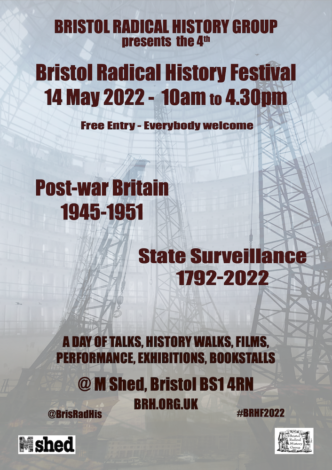Blacklisting and corporate surveillance
Corporations and police working hand in hand
Blacklisted - the whole story (2016, 45minutes, Tom Wood/Reel News) This film is an account of the system of blacklisting operated by the UK construction industry. It includes interviews with blacklisted workers and members of the Blacklist Support Group, along with footage from protests & pickets, as the blacklisted workers fight for truth and justice. It describes how the industry operated a secret blacklist - via The Consulting Association - to prevent workers, who would make an issue of […]


